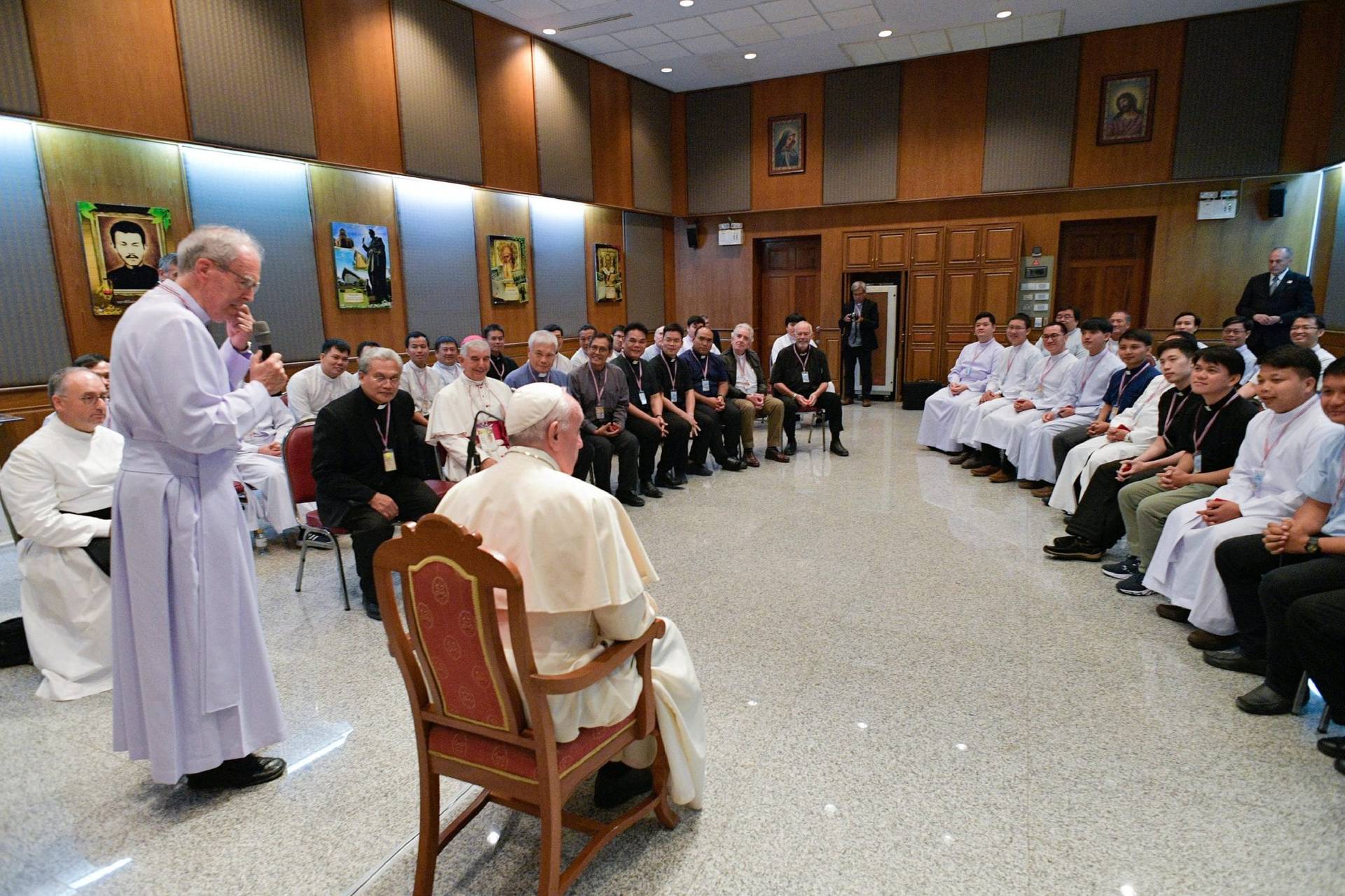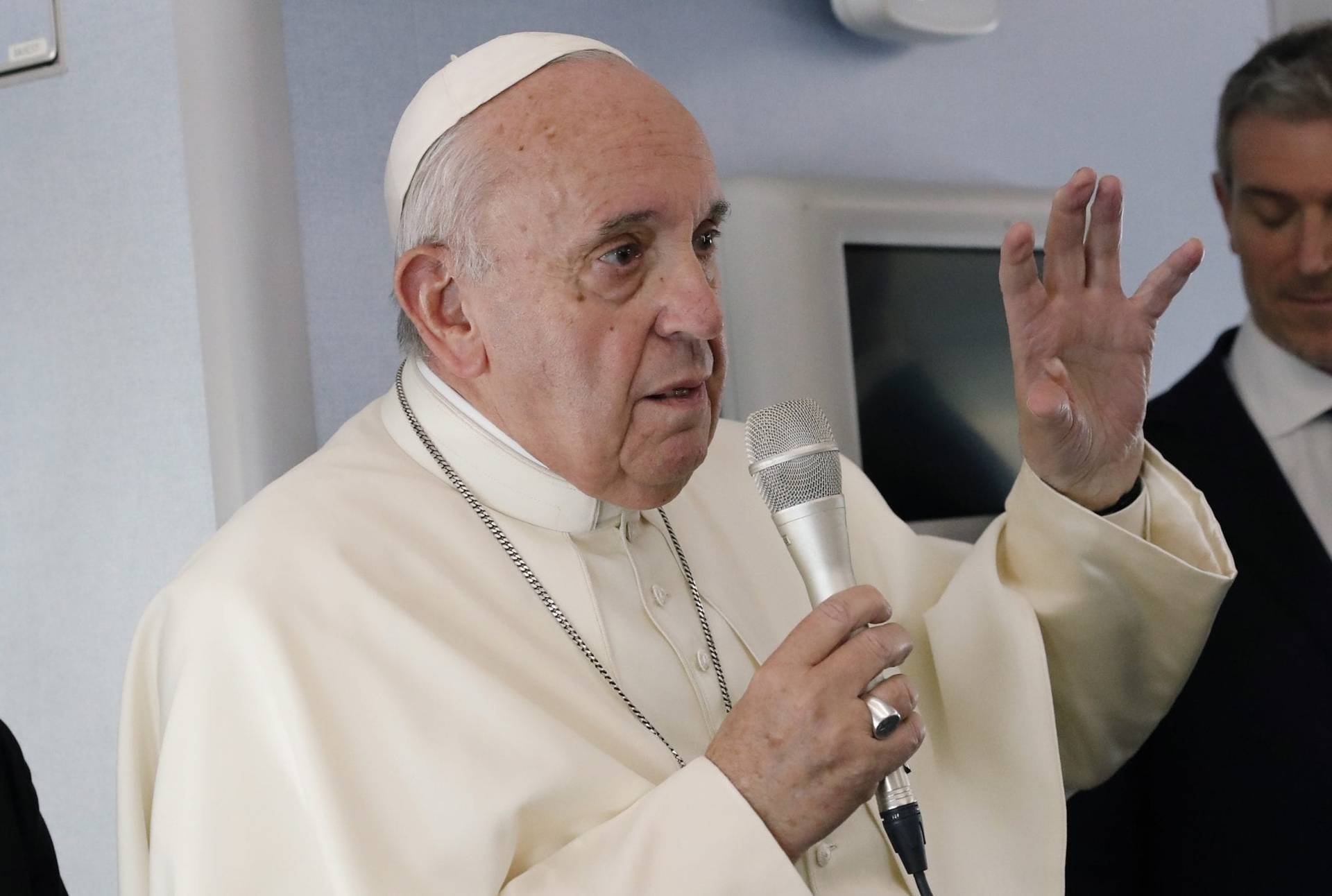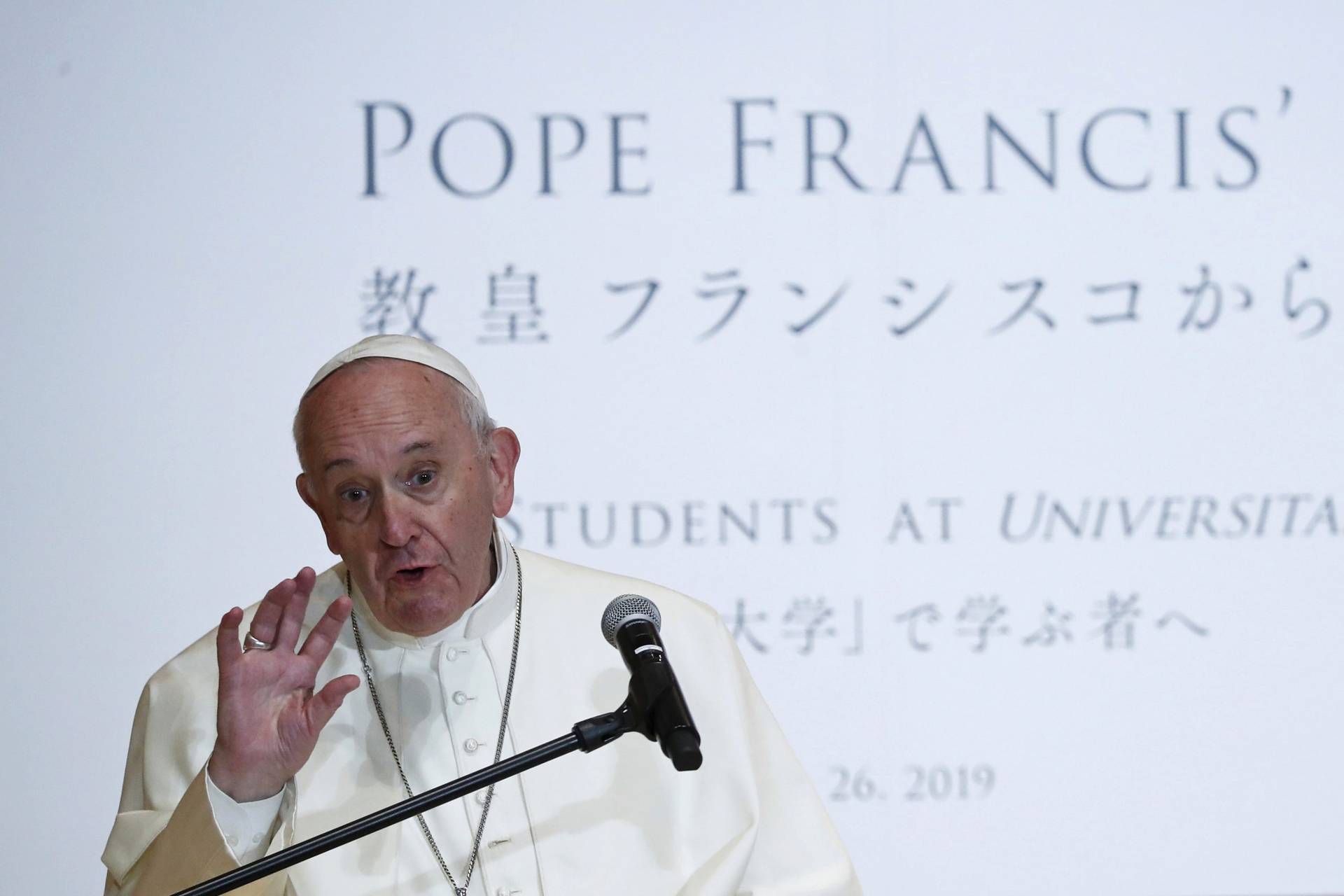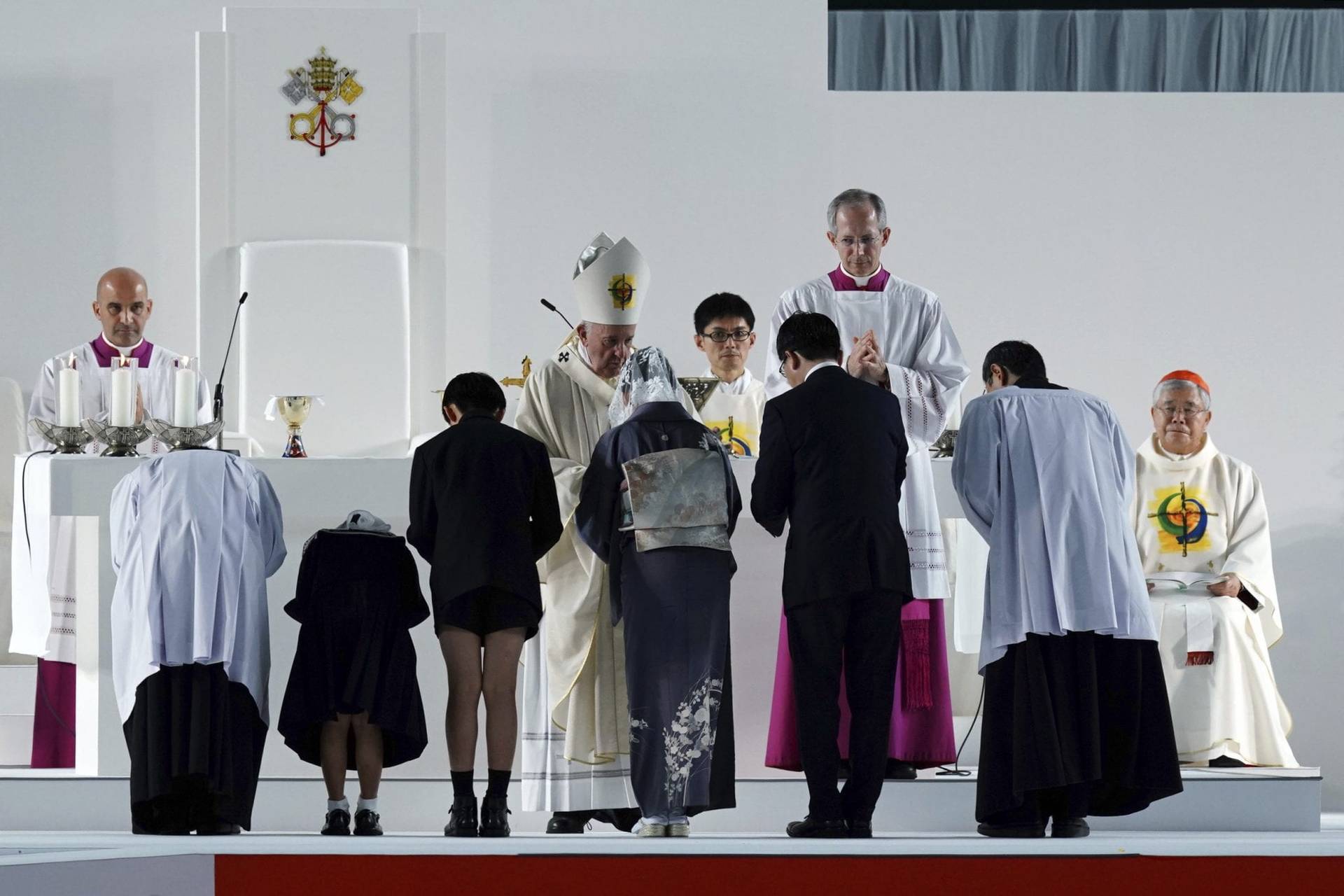BANGKOK, Thailand – Speaking to people from 18 different religions on Friday, Pope Francis said that the complex challenges of the world today – including globalization, the rapid advances of technology and the persistence of civil conflicts resulting in migration, refugees, famine and war – makes the need for cooperation between religions all the more pressing.
“These challenges remind us that no region or sector of the human family can look to itself or its future in isolation from or immune to others,” Francis said. “All these situations require us to be bold in devising new ways of shaping the history of our time without denigrating or insulting anyone.”
The days when an “insular mode of thought” seemed to offer a valid way of resolving conflicts are long gone, the pope said; now is the time to “be bold and envision the logic of encounter and mutual dialogue,” with cooperation becoming the code of conduct.
Francis’s words came during an encounter with Thai religious leaders at Bangkok Chulalongkorn University, named after the king who, in 1897, became the first non-Christian head of state to be welcomed by a pope – Leo XII – in the Vatican.
Some 1,500 people were gathered to listen to the pope, all from different religious traditions: Buddhism, Islam, Brahma-Hinduism and Sikhism, as well as Christians of different denominations, including leaders of the Orthodox Church in Thailand.
Thailand is a Buddhist majority country where Christians represent an estimated two percent of the total population of 69 million, with Catholics being fewer than 400,000 people.
When it comes to providing a new paradigm for resolving conflict, fostering understanding and protecting the environment, Francis said, religions and universities have much to offer, without renouncing their identities.
“Everything we do in this regard will be a significant step towards guaranteeing younger generations their right to the future, while serving the cause of justice and peace,” he said. “Only in this way will we provide the young with the tools they need to be in the forefront of efforts to create sustainable and inclusive lifestyles.”
If the world’s religious traditions are able to encounter one another without fear, they could bear witness to a widely shared spiritual patrimony that would allow the building of solid foundations, anchored in the respect for the dignity of persons, concerned for the protection of “our common home,” and preserving the richness of nature.
The different religious traditions, Francis insisted, are called not only to “heed the voice of the poor in our midst,” but also to work together in favor of the disenfranchised, the downtrodden, the indigenous peoples and religious minorities.
“For our part, we are asked to embrace the moral imperative of upholding human dignity and respecting the rights of conscience and religious freedom,” he said. “We need to create spaces where we can let in a breath of fresh air, in the certainty that all is not lost.”
Quoting his 2015 encyclical on the environment, Laudato Si’, Francis said that even though humans are capable of the worst, they are also capable of “rising above themselves, choosing again what is good, and making a new start, despite their mental and social conditioning.”
Surrounded by religious “elders,” Francis said that he wanted to “highlight” a distinctive feature that he considers a crucial part of the country’s wealth, and that they can “export” to other parts of the world: Their esteem and concern for the elderly.
“This ensures that you preserve the roots necessary so that your people do not lose their bearings by following certain slogans that end up emptying and mortgaging the soul of new generations,” he said, denouncing that there’s a “tendency to ‘homogenize’ young people,” turning them into “malleable goods.”
“This produces a cultural devastation that is just as serious as the disappearance of species of animals and plants,” he said.
Later Friday evening, during his last event in Thailand, Francis picked up the concept of rootedness, urging young people of the tiny Catholic flock in the country to be “deeply rooted” in the faith of their ancestors, not to be stuck in the past, but to “find the courage that can help us respond to every new situation.”
To be rooted in the faith of those who came before, he said, had to endure “many trials and much suffering,” yet they discovered that the secret to a happy heart is the “security we find when we are anchored, rooted in Jesus: in his life, in his words, in his death and resurrection.”
Those who don’t have a firm sense of “rootedness,” Francis said to the hundreds of young men and women who had gathered in Bangkok’s cathedral, risk being swayed by the “voices” that compete for their attention.
Many of these, he said, “are attractive and nicely packaged; at first they seem appealing and exciting, but in the long run they will leave you only empty, weary, alone and disenchanted.”
The fact that they are a new generation, he said, means they have new hopes, dreams and questions, but also doubts. “yet firmly rooted in Christ.” This rootedness, he insisted, allows them to view everything with “the joy and confidence born of knowing that the Lord has sought us out, found us and loved us infinitely.”
“Friendship cultivated with Jesus is the oil needed to light up your path in life and the path of all those around you: your friends and neighbors, your companions at school and work, including those who think completely unlike yourselves,” he said.
On Saturday, Francis will head for Japan, where he will stay until Nov. 26. He is scheduled to visit Hiroshima and Nagasaki on Sunday.
Follow Inés San Martín on Twitter: @inesanma
Crux is dedicated to smart, wired and independent reporting on the Vatican and worldwide Catholic Church. That kind of reporting doesn’t come cheap, and we need your support. You can help Crux by giving a small amount monthly, or with a onetime gift. Please remember, Crux is a for-profit organization, so contributions are not tax-deductible.













